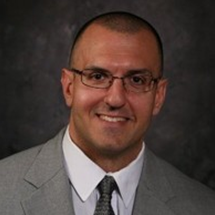BCOS Diplomate Manny Konstantakos, MD, Explains What It’s Like to Specialize in Orthopedic Surgery
 Since I was a child, I’ve been fascinated with the musculoskeletal system, and I have always played sports, weight-trained, or worked with my hands, so orthopedic surgery was a natural fit for me. I did my orthopedic residency at Wright State University in Dayton, Ohio, and graduated in 2012. And, upon completion of my sports medicine fellowship at the University of Chicago, I became board certified in orthopedic surgery through the Board of Certification in Orthopedic Surgery (BCOS), a Member Board of the American Board of Physician Specialties® (ABPS).
Since I was a child, I’ve been fascinated with the musculoskeletal system, and I have always played sports, weight-trained, or worked with my hands, so orthopedic surgery was a natural fit for me. I did my orthopedic residency at Wright State University in Dayton, Ohio, and graduated in 2012. And, upon completion of my sports medicine fellowship at the University of Chicago, I became board certified in orthopedic surgery through the Board of Certification in Orthopedic Surgery (BCOS), a Member Board of the American Board of Physician Specialties® (ABPS).
Working as an orthopedic surgeon almost feels like performing my hobby on a daily basis! I remember how happy, positive, and upbeat my orthopedic mentors were when I was a medical student at Case Western Reserve University, and to this very day, I share that feeling. What I like most about practicing orthopedic surgery and sports medicine is being able to see my surgical results almost instantly and seeing just how happy my patients are once they begin resuming the activities they enjoyed before their injury occurred.
The biggest challenges of working as an orthopedic surgeon are the same that other medical professionals encounter, regardless of their field—burdensome health care costs and the false information that patients can obtain, whether over the internet or by talking to someone who “had the same exact surgery.”
One of my most memorable experiences as an orthopedic surgeon was in my role as a sports medicine specialist. A top competitor in the Spartan Cross Fit games had suffered an athletic injury and was told by other physicians that his athletic career was over. After examining him and studying his X-rays and MRI results, I was confident that I could help. So, I performed surgery, and not only did he recover from his injury, but he went on to win the games! As the ancient Greek saying goes: Spartans prove themselves through actions, not words!
If I could offer advice to an orthopedic surgeon in training, I would say, first and foremost, learn as much as you can from every rotation and ask your attending physicians as many questions as possible. Also, learn to listen to your patients! It’s amazing how much just a bit more information from patients—mechanism of injury, for example—can help with prepping for surgery as well as physical therapy and rehabilitation. All it takes is a few more minutes of listening during the pre-op history and physical.
It’s also important that orthopedic residents keep an open mind about choosing a specialty, as they’ll always be involved in general orthopedics, especially during the early years of practice. Additionally, residents should know that there is a well-established certifying board that administers both written and oral board exams—the ABPS. The best part is, the ABPS is very fair and their testing process is recognized throughout America. I would advise all orthopedic residents to take their board exams with the ABPS. They’ll be glad they did!






